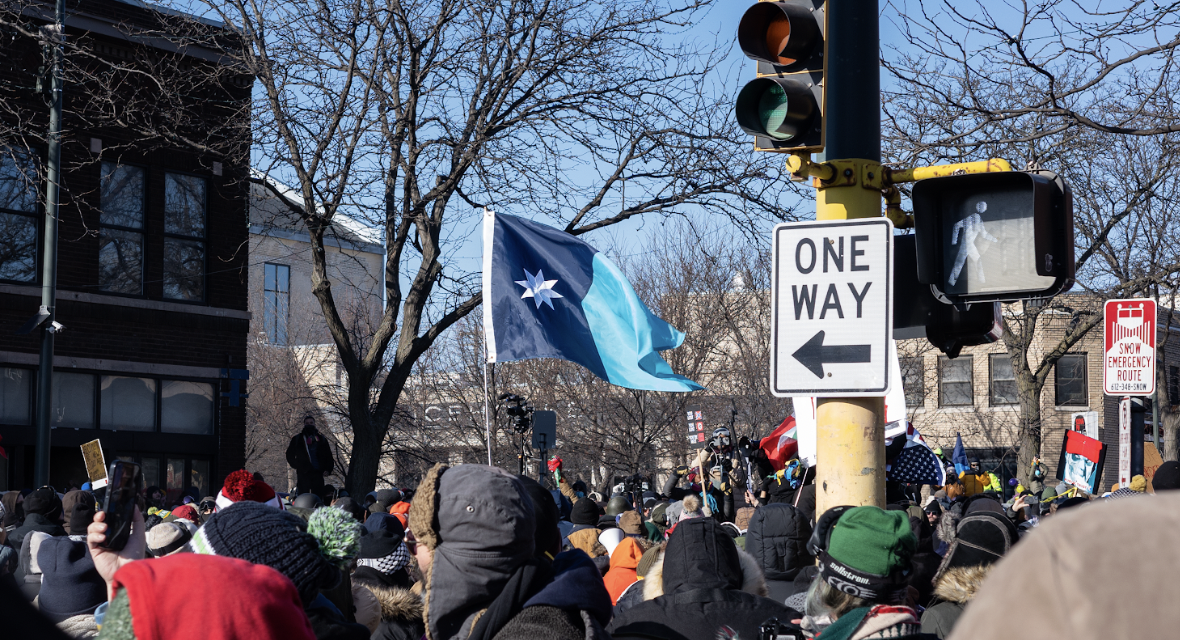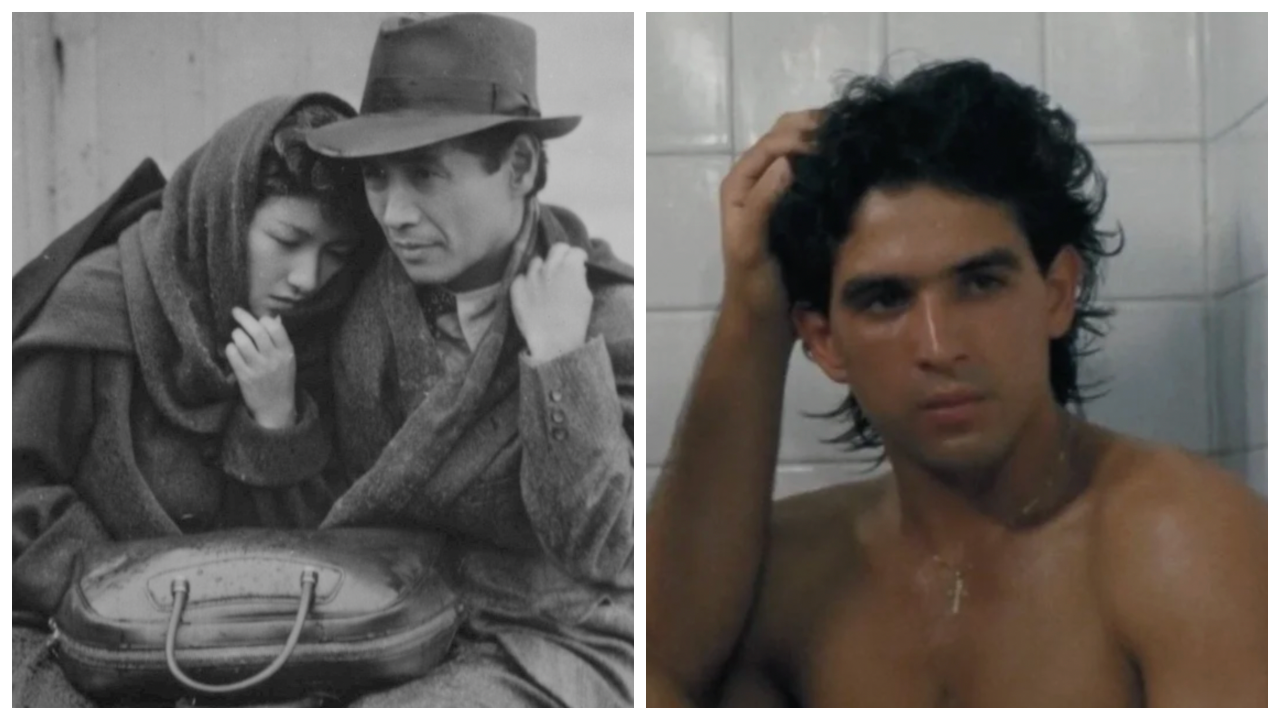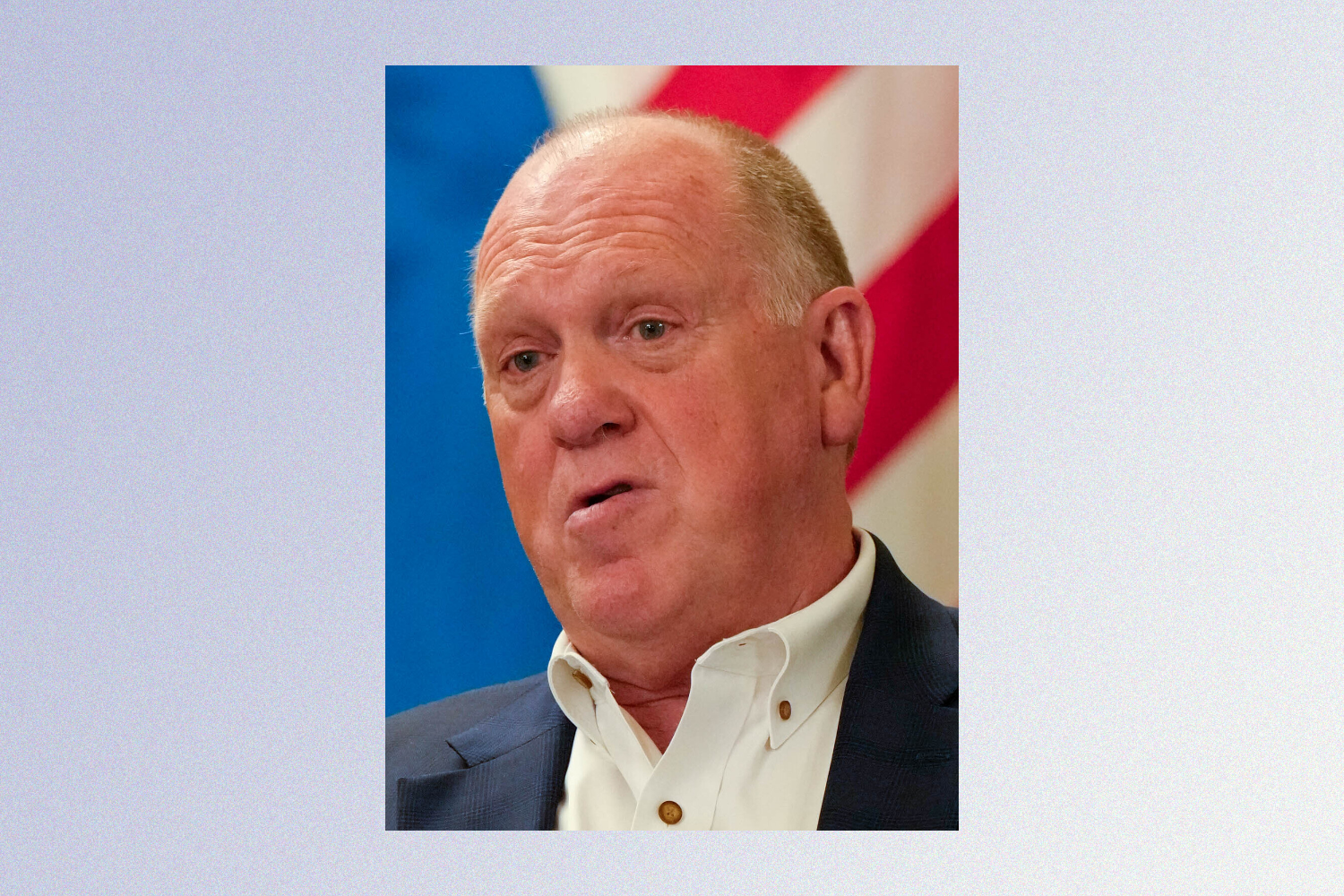There’s always genre. When a veteran director runs out of steam, there’s nothing like a time-honored narrative structure to give ’em some lines to color inside. But in their latest films, Andrew Haigh and Aki Kaurismäki haven’t turned to genre out of desperation or fallen back on it as a safety net. Instead they glance off its conventions to tell stories they might not have been able to otherwise.
All of Us Strangers is a ghost story. Or at least—I don’t want A24 stans to get the wrong idea—Andrew Haigh’s idea of a ghost story. These specters roost inside our heads, where they can seem more real than the material world outside; they can allow us to make peace with the past, or they can lure us away from our lives into deceptively comforting fantasies.
In Strangers, Andrew Scott is Adam, a solitary gay screenwriter old enough to remember the AIDS epidemic and Frankie Goes to Hollywood, who lives in a nearly unoccupied London high rise with huge windows that only serve to reinforce his isolation. He’s currently writing about his parents, who died in a Christmas Eve car crash when he was 11, and for inspiration one day he takes a train out to his hometown. That’s when the uncanny sets in.
While roaming the woods outside of town, Adam spies a young man a little ways off, and follows him to a shop. When they finally talk, you might suspect at first that Adam’s being cruised, but the man turns out to be his father (Jamie Bell), who takes Adam to his childhood home to see his mother (Claire Foy). The reunion is effusive on the part of the parents, who remain the same age as they were when they died, while Adam appears a bit overwhelmed as he tells them of his adult life.
Returning to London, Adam soon meets the only other occupant in the building (or at most one of the few), who, as fate would have it, is also gay and hot (and younger). Harry (played by Paul Mescal, just in case you thought this one was gonna have a happy ending) swings by soused one night, and Adam turns him away, out of politeness or reluctance or annoyance. Here, as throughout the film, Scott brilliantly inhabits a man who knows how to keep his distance. Adam’s smile is not malicious but not inviting either—it’s evasive, a way of putting people off while avoiding confrontation, and it’s clearly practiced.
We watch the two meet again, flirt awkwardly, kiss, fuck, and eventually spend the night together. They negotiate their age difference, debating the terms “queer” and “gay,” and share those parts of their life stories they feel are fit to share. The perfect foil to the reserved Scott, Mescal gives a bear hug of a performance here—Harry takes up space in a way that both unsettles and comforts Adam, with a baseline of darkness troubling his gregariousness. After a big snort of ketamine while they’re out clubbing, Adam imagines what their life together would be like, and that’s when we’re left to wonder how many of Adam’s interactions with Harry might simply be imagined.
Cinematographer Jamie D. Ramsay allows Haigh to blur the lines between reality and fantasy without being too obvious about it. Strangers may in fact be Haigh’s most inventively filmed script to date, with the faces of these four very attractive people shot in extreme closeup or lit by a glare with an unseen source in a way that doesn’t uglify them but reveals nuances of character. Bell and Foy never seem anything less than real humans, and Adam’s childhood home is a solid, lived in space. In contrast, here’s something dreamlike and less than corporeal about his flat, which is typically dark or dim, and he and Harry are often seen in reflection as surreal mirror images.
All of Us Strangers stands alongside other recent smart, moving films about children and their parents like Charlotte Wells's Aftersun and Céline Sciamma's Petit Maman, which also toy ambiguously with the supernatural and dreamlike. But where the children in those movies seek to understand their parents, this is an exercise in retroactively imagining the particular kind of love you needed and didn’t get as a child. Adam’s parents turn out to be two sweet, flawed people, as so many of us are, but they aren’t totally idealized. “You don’t look gay,” Adam’s mum says clumsily when he comes out to her; his father recalls Adam crying in his room after school and admits that when he was a boy he’d have bullied a kid like that too. Past damage is addressed indirectly as well, and after hearing Foy murmur along to the Pet Shop Boys’ “Always on My Mind” as the family decorates their Christmas tree, it will forever be a song of a regretful parent for me.
The sort of director who knows when to stand back and let the actors carry the film, Haigh also knows how to end a movie with the sort of epiphany that redefines all that’s come before it. No final scene this century has knocked the wind right out of me as completely 45 Years, where the truth about her long marriage to a glibly evasive Tom Courtenay finally registers on Charlotte Rampling’s face once they finish their anniversary dance, keyed to a dynamite Moody Blues needle drop. All of Us Strangers’s ending is even more of a gut wringer, with a twist that might at first seem gratuitous until a final sequence set to Frankie Goes to Hollywood’s “The Power of Love,” pulls everything together.
That ending has thrown more than a few viewers off (“Who was dead in this?” asks one two-star Letterboxd review desperately), and while I generally consider fan theories the preserve of those who prefer puzzles to movies and answers to art, the generally accepted reading is convincing this time. A ghost story but also a love story, All of Us Strangers suggests that everything we need to make us complete is already within us—and that this might in fact be the saddest fate possible.
We all know that the course of true love never did run smooth, but Aki Kaurismäki would like to remind us that the other kinds of love tend to stumble along as well. Fallen Leaves is the Finnish director’s idea of a romcom, told in his usual terse, deadpan style. For 80 minutes, two middle-aged, taciturn, and presumably lonely Helskinians (played by Alma Pöysti and Jussi Vatanen) toy with the idea of falling in love, their decision delayed by their own recalcitrance and the quirks of fate.
Twenty films in, though, Kaurismäki is such a known quantity that he’s essentially his own genre; his seriocomic tales of dour Finns have been international arthouse staples for more than three decades. Whether he’s examining the fate of immigrants, as in his recent films, or documenting the lives of working Finns, as here, some things remain constant. The characters are stoic, the settings are grim, the shots are static, there’s a retro sheen to the contemporaneity.
Fallen Leaves is a simple tale of boy almost meets girl at karaoke, girl sees boy passed out drunk in a bus shelter and chases off some kids who were looking for his wallet, boy finally meets girl while watching her boss get arrested, boy loses girl’s phone number, boy… OK, so it’s not so simple a tale. We only know her first name (Ansa) and his surname (Holappa), and not much else about either besides that, other than the fact that they’re both too old to be called boy or girl.
Fallen Leaves is a continuation of Kaurismäki’s “Proletarian” series, which he’d previously appeared to have wrapped up as a trilogy in 1990 with The Match Factory Girl. Dreary subsistence is the prevalent mood. At the start of the film, Ansa works at a Helsinki supermarket, Holappa in a factory, but they keep losing jobs, she out of misfortune and he because he’s an inveterate drunk. In fact, Dead Leaves is a more accurate translation of the Finnish title, but apparently U.S. audiences are too squeamish for that.
"I'm depressed because I drink and I drink because I'm depressed," is how Holappa sums up his life to his pal Huotari (Janne Hyytiainen). Their banter has a Beckettian flatness, without even a Godot to wait for. Ansa prefers to spend her time at home, her life so solitary that when she invites Holsappa over for dinner, she has to buy a second plate, which she immediately dumps in the trash when the evening ends with a tiff.
Kaurismäki’s Helsinki is a place with no identity of its own. Music from elsewhere (an old Italian pop novelty, a hilariously literal rock ‘n’ roll song about rockin’ and rollin’) drifts into the film, and at times the only genuine Finnish culture appears to be alcoholism. The film’s other soundtrack is radio coverage of the Russian invasion of Ukraine, laid out atrocity by atrocity. That link to the outside world might come off heavy-handed in another setting, but not in Finland, which shares a 830-mile border with Putin’s aggressors. The low-level anxiety those reports generate lends the film an air of carpe diem, though its characters would never cop to anything so impulsive.
As ever, Kaurismäki is one of those movie guys who always wants to remind you he loves movies. Fallen Leaves is aflutter with cinematic winks, including Chaplin nods you can’t miss along with more ironic echoes of Brief Encounter and An Affair to Remember. On their first date, Ansa and Holappa sit stone-faced through Jim Jarmusch’s splattery zombie romp, The Dead Don't Die. (In an unusually prolix moment afterward, Ansa doubts that the police could have taken on so many zombies.)
Vatanen has Jimmy Stewart’s drawn good looks without his warmth or prickliness. Pöysti has an even more impassive face. Her rare moments of expressiveness aren’t instances of spontaneity slipping through her mask; it’s as though she has to will them to occur. Both are ideal for this formalist little movie, with every line, every action, and every reaction in its right place. Fallen Leaves may feel, if anything, a bit too well-made at times. But Kaurismäki’s self-control, never an end in itself, is always in service to the story he’s telling, right up to the moment when Ansa and Holsappa finally stroll off together with their little dog in tow for as happy an ending as the Finnish temperament allows.
GRADES
All of Us Strangers: A
Fallen Leaves: A-
All of Us Strangers is now playing in area theaters; Fallen Leaves is playing at The Main.






